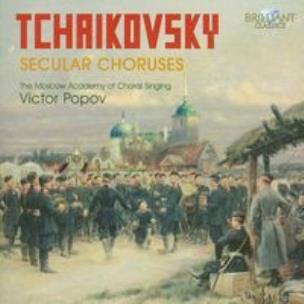- Regulamin
- Koszty dostawy
- Kontakt
- Dziś w ofercie 233 672 produkty
KSIĄŻKI
- Albumy
- Beletrystyka
- Biografie
- Dla dzieci i młodzieży
- Edukacja
- Ekonomia i biznes
- Ezoteryka
- Historia
- Informatyka
- Kalendarze
- Komiksy
- Kryminał i sensacja
- Kultura i sztuka
- Literatura faktu
- Literatura kobieca
- Literatura piękna
- Medycyna
- Nauka języków obcych
- Nauki humanistyczne
- Nauki przyrodnicze
- Nauki ścisłe
- Podręczniki
- Poradniki
- Prawo i administracja
- Przewodniki i podróże
- Psychologia
- Religia
- Sport
- Technika
- Zdrowie i uroda
ZABAWKI
- Artykuły dla niemowląt
- Bączki
- Bujaki i skoczki
- Ciągnij / pchaj
- Dla niemowlaka
- Grzechotki i gryzaki
- Karuzele i pozytywki
- Maty i centra zabaw
- Projektory i lampki
- Sortery i piramidki
- Zabawki
- Edukacyjne i kreatywne
- Figurki
- Klocki
- Lalki
- Pojazdy
- Pluszaki i maskotki
- Sport i rekreacja
- Zabawa w dom
- Zabawki drewniane
- Puzzle
- Do 200 elementów
- 201-500 elementów
- 501-1000 elementów
- Ponad 1000 elementów
- Puzzle 3D
ART. PAP
- Artykuły biurowe
- Artykuły piśmiennicze
- Bloczki i kartki samoprzylepne
- Dziurkacze
- Kalkulatory
- Nożyczki i nożyki
- Skoroszyty
- Teczki
- Wizytowniki
- Zszywacze
- Artykuły szkolne
- Akcesoria szkolne
- Modelowanie
- Notatniki i zeszyty
- Piórniki
- Plecaki i torby
- Pojemniki na śniadanie
- Pomoce naukowe
- Przybory matematyczne
- Przybory rysunkowe
- Upominki i gadżety
- Akcesoria do książek
- Artykuły balowe
- Breloki i zawieszki
- Drobiazgi, różności
- Kubki
- Oferta Świąteczna
- Papeteria, kartki i naklejki
- Skarpetki Many Mornings
- Upominki
GRY
MULTIMEDIA
- Audiobooki
- Beletrystyka
- Biografie i wspomnienia
- Dla dzieci i młodzieży
- Fantastyka
- Filozofia i religia
- Historia
- Literatura faktu i reportaż
- Poradniki
- Sensacja i kryminał
- Filmy DVD/BD
- Animowane
- Biograficzne
- Fantasy
- Horrory
- Komedie
- Romanse
- Science Fiction
- Sensacyjne / kino akcji
- Thrillery
- Muzyka CD
- Alternatywna
- Blues
- Dla dzieci
- Jazz
- Klasyczna
- Piosenka aktorska i poetycka
- Pop
- Rock
- Świąteczna i kolędy
- Akcesoria GSM
- Głośniki
- Kable i adaptery
- Klawiatury
- Myszy
- Słuchawki
PROMOCJE
ZDROWIE
LEGO

Tchaikovsky: Secular Choruses
Wydawca:
Brilliant Classics
ISBN:
5028421942100
EAN:
5028421942100
oprawa:
Plastikowa
czas trwania:
54:11
format:
14.0x12.0cm
język:
angielski
rok wydania:
2011
(0) Sprawdź recenzje
Opis produktu
Zasady bezpieczeństwa
In the field of choral music Tchaikovsky is known as the first Russian composer to have composed cycles of the Liturgy and the Vespers, but his considerable output of secular choral music is less well-known, and a delightful surprise. These secular choruses are little jewels, written for various types of choir, with all the familiar qualities of melody and rich harmony that we associate with Tchaikovsky. Some, including Autumn, Child's Song and A Legend (from 16 Children's Songs Op.54), and the pastoral Dawn were written for solo voice or duet, and Night, a vocal quartet with piano, but Tchaikovsky soon realised that they sounded better as choruses. Autumn and Child's Song both have a tenor solo, and contrast well with each other: a misty autumnal poem of lethargic melancholy and a comical, playful little ditty. Another highlight is the melancholy Old French Air, with its timeless charm, which also appears as a minstrel's song in Tchaikovsky's opera The Maid of Orléans. Other works of note include the radiant Nature and Love, a sentimental trio for soprano, mezzo and contralto, three-part female chorus and piano, and the meditative nocturne Before Sleep, composed in his student years. Greeting to Anton Rubinstein is an extraordinary seven part piece written for the 50th anniversary of Rubinstein's career.
The Nightingale is without a doubt Tchaikovsky's finest achievement in choral music, a magnificent reconstruction of a folk song. The vocal quartet Night is a tribute to Mozart, who Tchaikovsky idolised, and is an arrangement of the middle section of Mozart's Fantasy in C minor for piano. The finale, Neapolitan Air, is a little choral divertissement whose tune was derived from Swan Lake.
About the performers:
The Moscow Academy of Choral Singing, directed by Victor Popov, specialises in performing Russian choral music.
CENA:
21,12
zł
Cena detaliczna:
24,90 zł
15%
rabatu
Najniższa cena z ostatnich 30 dni: 21,12 zł
Produkt niedostępny
Uwaga!!!
Ten produkt jest zapowiedzią. Realizacja Twojego zamówienia ulegnie przez to wydłużeniu do czasu premiery tej pozycji. Czy chcesz dodać ten produkt do koszyka?


Wybierz wariant produktu
